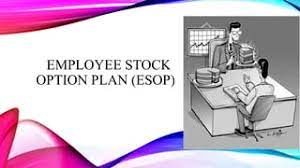Employee Stock Option Plan (ESOP): Empowering Employees and Driving Growth

Employee Stock Option Plan (ESOP): Empowering Employees and Driving Growth– An Employee Stock Option Plan (ESOP) is a compensation scheme that grants employees the option to purchase company shares at a predetermined price within a specified time frame.
Daily Current Affairs Quiz: August 2023
To motivate and engage their employees, Employee Stock Option Plan (ESOP) will not only rewards employees but also aligns their interests with the company’s success.
ESOPs are commonly used by startups, established firms, and even publicly traded companies to incentivize employees and foster a culture of shared success.
Benefits of ESOPs:
Implementing an ESOP can yield several benefits for both employees and the company as a whole:
- Employee Alignment: Employees’ interests are aligned with the company’s performance through ESOPs, generating a sense of ownership and dedication. When employees hold a stake in the organization’s success, they are more likely to work towards its growth and profitability.
- Retention and Recruitment: ESOPs serve as a powerful tool for attracting top talent and retaining skilled employees. The prospect of owning a portion of the company can be a compelling incentive that differentiates the company from its competitors.
- Motivation and Engagement: ESOPs provide employees with a tangible stake in the company’s future. This can significantly boost their motivation and engagement levels, leading to increased productivity and innovation.
- Long-Term Focus: Since ESOPs often come with vesting periods (the time an employee must wait before exercising their options), they encourage employees to take a long-term perspective on the company’s growth and success.
- Tax Advantages: ESOPs can offer tax advantages to both the company and employees, depending on the jurisdiction and specific plan structure. These advantages can vary and should be explored with financial and legal experts.
Implementing an ESOP:
Creating and implementing a successful ESOP involves several key steps:
- Plan Design: Companies need to decide on the structure of the ESOP, including the number of options to be granted, vesting periods, exercise price, and eligibility criteria.
- Valuation: The current value of the company’s shares is critical for determining the exercise price of the options. For this aim, professional valuation services are frequently used.
- Communication: Transparent and clear communication about the ESOP is essential. Employees need to understand the potential benefits, risks, and how the plan aligns with the company’s goals.
- Legal and Regulatory Compliance: ESOPs are subject to legal and regulatory requirements. Companies must ensure that the plan complies with relevant laws and regulations.
- Administration: Proper ESOP administration, including tracking vesting, exercise dates, and supplying required documents, is critical to its success.